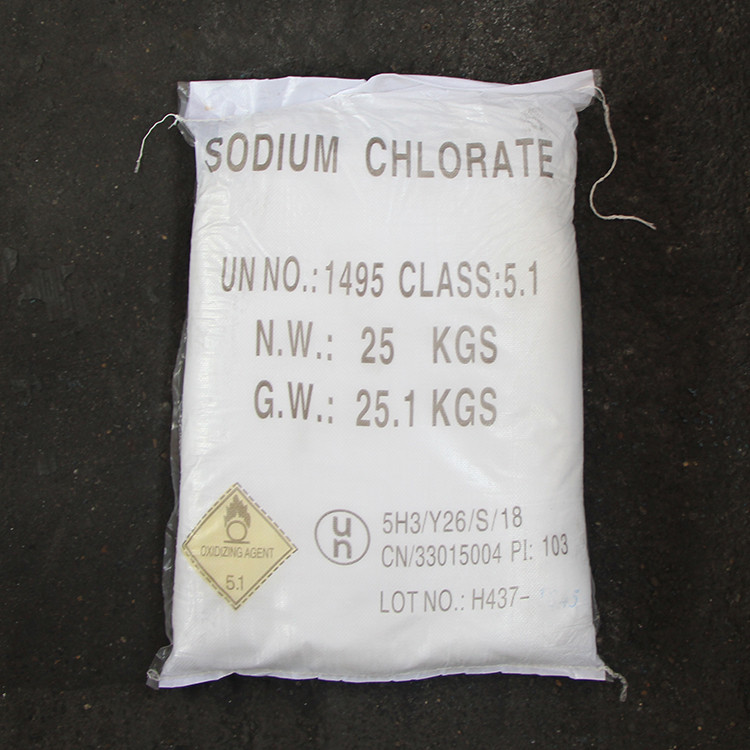



Sodium Chlorate - HEBEI FIZA | Purity 99% & Industrial Use

Introduction to Sodium Chlorate
Sodium chlorate (sodium chlorate) is an inorganic compound with the chemical formula NaClO₃. As a white crystalline powder, it is highly soluble in water and exhibits hygroscopic properties, meaning it readily absorbs moisture from the environment. This compound plays a pivotal role in various industrial applications, particularly in the production of chlorine dioxide (ClO₂), which is widely used in pulp bleaching to achieve high-brightness paper. According to the National Institute of Standards and Technology (NIST), sodium chlorate is a critical component in chemical processes requiring precise measurement and stability, underscoring its importance in modern manufacturing [1].
Key Properties of Sodium Chlorate
Sodium chlorate is characterized by its unique physical and chemical properties, which make it suitable for specialized industrial applications. Key properties include:
- Chemical Stability: Sodium chlorate remains stable under normal conditions but decomposes above 300°C, releasing oxygen and leaving behind sodium chloride (NaCl). This decomposition reaction is critical in applications requiring controlled oxygen release.
- Solubility: It dissolves readily in water, making it easy to handle in aqueous solutions. Its solubility is a key factor in its use as a precursor for chlorine dioxide production.
- Hygroscopic Nature: The compound absorbs moisture from the air, necessitating careful storage in dry, airtight container111s to prevent clumping and degradation.
- Reactivity: Sodium chlorate is a strong oxidizing agent, which contributes to its effectiveness in bleaching and disinfecting processes.
Technical Specifications
The following table outlines the technical specifications of sodium chlorate, as provided by FIZA, a leading manufacturer in the industry:
| ITEMS | STANDARD |
|---|---|
| Purity-NaClO₃ | ≥99.0% |
| Moisture | ≤0.1% |
| Water Insolubles | ≤0.01% |
| Chloride (based on Cl) | ≤0.15% |
| Sulfate (based on SO₄) | ≤0.10% |
| Chromate (based on CrO₄) | ≤0.01% |
| Iron (Fe) | ≤0.05% |
Additional specifications include:
| Brand Name | Purity |
|---|---|
| FIZA | 99% |
| CAS No. | EINECS No. |
| 7775-09-9 | 231-887.4 |
| Molecular Formula | Appearance |
| NaClO₃ | White crystalline solid |
| Other Names | Molecular Weight |
| Sodium chlorate Min | 106.44 |
Industrial Applications of Sodium Chlorate
Sodium chlorate is a cornerstone of modern industrial chemistry, with its primary application being the production of chlorine dioxide (ClO₂). According to NIST, chlorine dioxide is a versatile chemical with applications in water treatment, disinfection, and pulp bleaching [1]. Here are some key applications:
1. Pulp Bleaching
Approximately 95% of sodium chlorate is used to produce chlorine dioxide for bleaching pulp in the paper industry. This process enhances the brightness of paper while reducing environmental impact compared to traditional chlorine-based bleaching methods.
2. Disinfectants and Sanitizers
Chlorine dioxide, derived from sodium chlorate, is widely used in water treatment systems and industrial sanitation to eliminate bacteria, viruses, and other pathogens. Its efficacy as a disinfectant is well-documented in studies by the Environmental Protection Agency (EPA) [2].
3. Chemical Synthesis
Sodium chlorate serves as a precursor for the synthesis of other chlorate and perchlorate compounds. For example, it is used in the production of potassium chlorate and ammonium chlorate through salt metathesis reactions.
4. Electrochemical Processes
Industrially, sodium chlorate is oxidized via electrolysis to produce perchlorate compounds, which are essential in rocket propellants and explosives.
Product Packaging and Logistics
Sodium chlorate is typically packaged in 25 kg or 1000 kg bags, with customization available to meet customer requirements. Proper storage in a dry, cool environment is critical to maintain its stability and prevent moisture absorption.
Company Background: Hebei Fiza Technology Co., Ltd.
Founded in China, Hebei Fiza Technology Co., Ltd. (HEBEI FIZA) is a leading manufacturer and supplier of sodium chlorate and other specialty chemicals. The company is committed to delivering high-purity products that meet international standards, supported by rigorous quality control measures. FIZA’s expertise in chemical production and its focus on customer satisfaction have established it as a trusted partner in the global chemical industry.
Why Choose Sodium Chlorate from FIZA?
As a manufacturer with extensive experience in chemical production, FIZA offers several advantages:
- High Purity: With a purity level of 99%, FIZA’s sodium chlorate ensures optimal performance in industrial applications.
- Reliable Supply Chain: The company provides flexible packaging options to accommodate diverse customer needs.
- Compliance: FIZA adheres to international standards for chemical safety and environmental responsibility.
Conclusion
Sodium chlorate is an essential chemical with a wide range of applications in industries such as paper production, water treatment, and chemical synthesis. Its unique properties, combined with the high-quality standards of manufacturers like FIZA, make it a critical component in modern industrial processes. As research continues to explore new applications for chlorine dioxide and related compounds, sodium chlorate will remain a vital resource for innovation and sustainability.
References
[1] National Institute of Standards and Technology (NIST). (n.d.). Retrieved from https://www.nist.gov/
[2] Environmental Protection Agency (EPA). (n.d.). Retrieved from https://www.epa.gov/
-
How and Why to Disinfect Water Softeners for Safe, Reliable WaterNewsNov.24,2025
-
Effective Deionized Water Disinfectant Solutions for Healthcare & Industrial UseNewsNov.24,2025
-
Commonly Used Disinfectant for Drinking Water – Global Uses & InnovationsNewsNov.23,2025
-
Chemical to Disinfect Water – Essential Solutions for Safe, Clean Drinking WaterNewsNov.23,2025
-
Blue Water Disinfectant: Safeguarding Global Water Quality with InnovationNewsNov.22,2025
-
Bleaching Powder for Water Disinfection – Affordable & Effective Water Treatment SolutionNewsNov.22,2025
-
Bleaching Powder Drinking Water: Effective, Affordable Disinfection WorldwideNewsNov.21,2025










